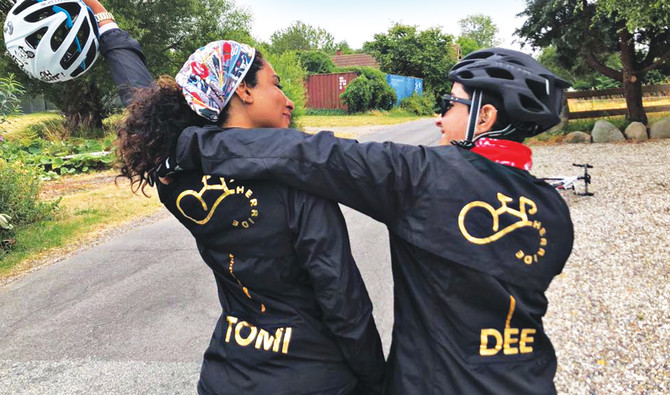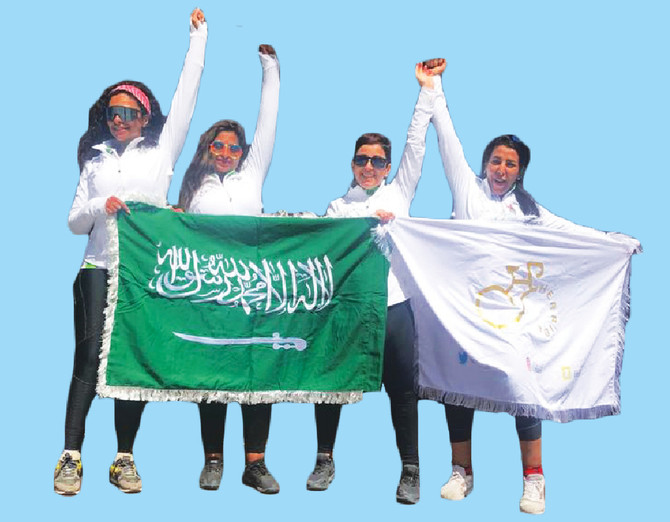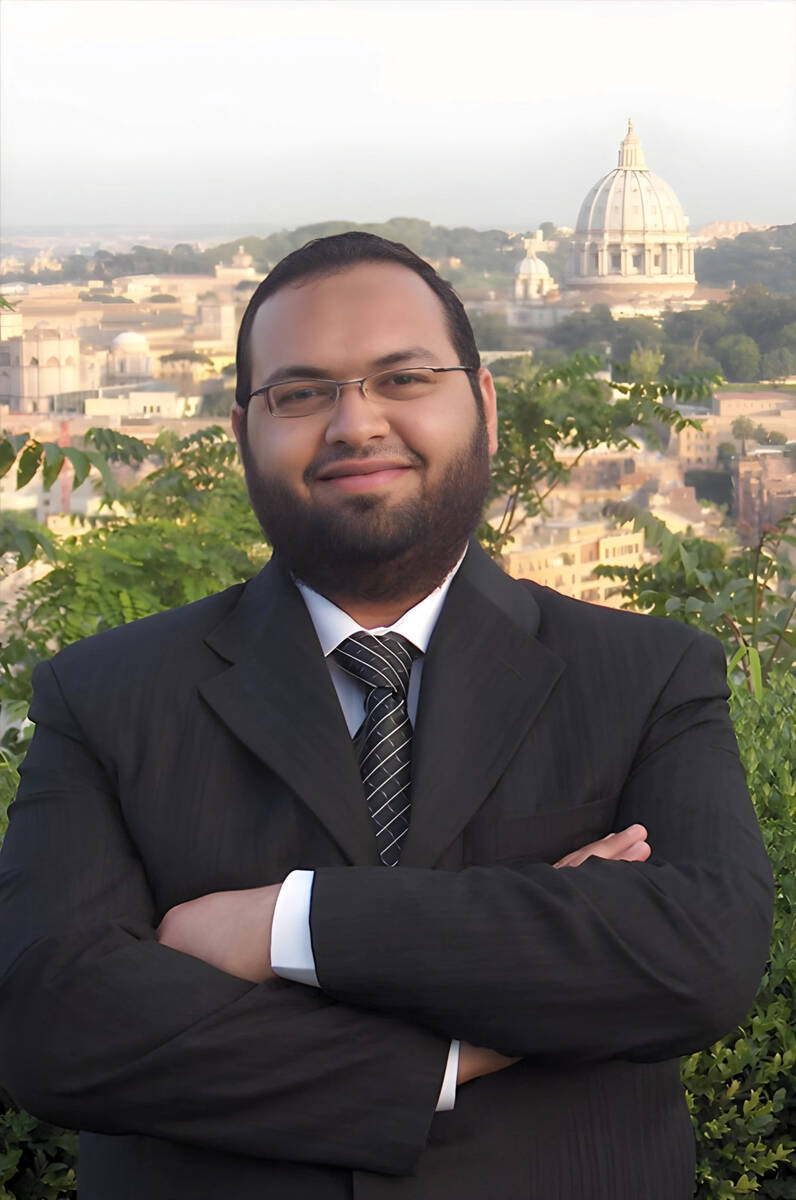JEDDAH: Before Saudi Arabia’s women drivers there were Saudi women cyclists. Thousands of women around the Kingdom have taken to two wheels in the past few years, and groups of female cyclists are a common sight on city streets.
Now four young women have taken cycling to a new level by becoming the first Saudi female cycling team to join the Global Biking Initiative (GBI) European tour, an annual seven-day ride that highlights the sport and raises money for a range of charitable causes.
Sisters Fatimah and Yasa Al-Bloushi, Dina Al-Nasser and Anoud Aljuraid — founder members of the HerRide cycling group — joined hundreds of cyclists from all over the world earlier this month when the tour kicked off from Gothenburg in Sweden before heading through Denmark and on to the port of Hamburg in northern Germany.
More than 70 Saudi cyclists took part in the tour, including the four HerRide members.
The dynamic HerRide team shares a passion for adventure, and a love of outdoor activities and sports. Fatimah Al-Bloushi, the team captain, told Arab News that when she started the group in July, 2017, “we were a group of amateur cycling enthusiasts and our idea was to train to be the first Saudi female team to participate in GBI Europe 2018.”
This year was Fatimah’s second time in the GBI tour. Last year she was the first and only Saudi woman to take part in the event.
“I want to empower Saudi women and encourage cycling,” she said.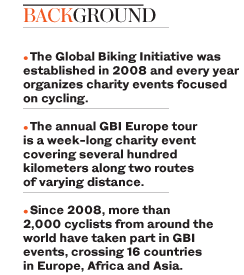
Fatimah also enjoys skydiving, surfing, abseiling and climbing, and is also the first woman member of the Saudi Cycling Federation. In her hometown of Alkhobar, she organizes women’s gatherings twice a week to cycle together along the beachfront. She also volunteers to teach cycling for beginners.
Like all sports events and tours, training plays a crucial role in preparing for the GBI tour. Team member Anoud Aljuraid, an accomplished hiker and technical climber, met Fatimah two years ago while climbing the Ol Doinyo Lengai, or “Mountain of God,” volcano in Tanzania.
“For me the challenge was sitting on the bike for up to eight hours while riding up to 100 kilometers a day,” Aljuraid said. “It was also hard to maintain a certain speed to reach the next destination or nutrition point on time, but my training helped me get over those challenges.”
Although the number of women cyclists on the streets of Saudi Arabia is growing, challenges remain for those joining the sport.
Team member Dina Al-Nasser lives in Riyadh and enjoys long-distance cycling as well as hiking and boxing. Her biggest challenge during the GBI tour was cycling alongside cars.
“I mostly trained at home, but it’s hard for me to train in areas where men usually train, such as Wadi Hanifa and Ammariyah,” she said. “However, I was able to get over my fear and by the third day on the tour I was riding alongside trucks and didn’t even notice.”
Al-Nasser said that cycling is challenging not only for women in Saudi Arabia but for professional cyclists in general.
“We hope that the streets will be more bike friendly, and that people can adopt the same infrastructure for cyclists that we have seen on the tour — such as special paved paths and traffic lights — here in the Kingdom,” she said.
“Hopefully, cycling will become a lifestyle in Saudi Arabia and we will see people cycling to work one day.”
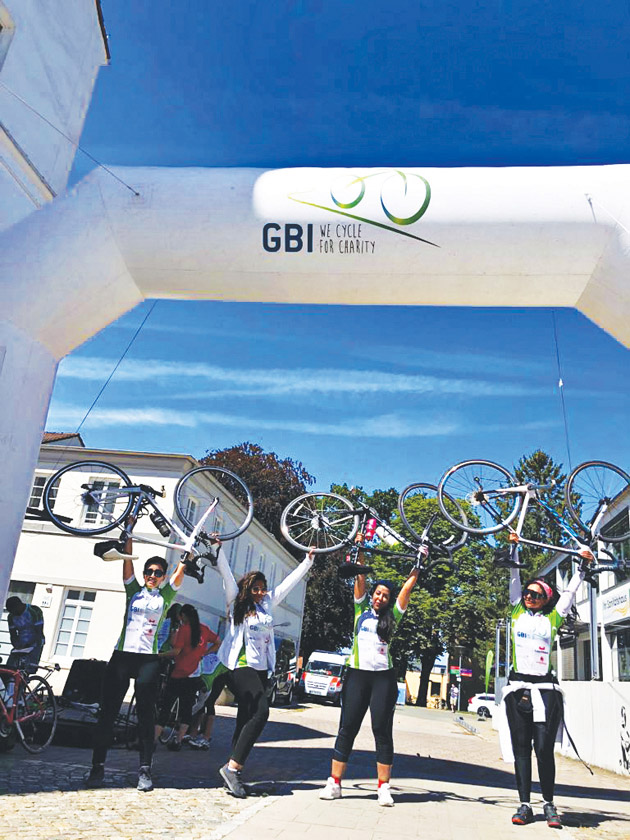
The Saudi HerRide women’s team celebrate a challenging stage finish on the GBI European tour. (Supplied photo)
Despite the challenges, the HerRide team say they are hoping to join the next GBI tour. “It was a great experience to cross three countries by bicycle,” Yasa Al-Bloushi said. “Of course, we got some bruises and had falls here and there, but I look at that as a sign of accomplishment.”
The team members gained valuable skills from watching other riders during the tour. “I learned how to be a part of a team and to look out for each other. It was important to listen to my team-mates and focus on their needs,” said Dina Al-Nasser.
Fatima Al-Bloushi said that the support of her team made her second tour more special than the first. “We knew each other’s weaknesses from day one and we always had each other’s back. If our energy levels were low, someone would provide nutrition. When our spirits were down, we had music to give us a boost, and when someone was nervous, we reminded each other to have fun,” she said.
“I experienced GBI twice. The first time I went alone and came back with a family of friends. The second time I went with friends and came back with family.”
The woman said the spirit of cooperation among cyclists on the tour was empowering. “What made this experience even more amazing, besides the beautiful scenery, was the quality of people we met,” said Fatima. “If we were struggling, they would pass by with a smile, give you a pat on the back and tell you that you were strong enough to push through — it really did make us feel stronger.”
In future, the group plans to hire a professional trainer and offer cycling workshops for Saudi women. They also hope long-distance cycling events, such as the GBI, will one day be held in Saudi Arabia.
“Under Vision 2030, I’m sure there will be a lot of local events for cyclists in the Kingdom, including women,” said Al-Nasser.
The four cyclists have some words of encouragement for Saudi women hoping to fulfil their dreams. “You will always find people who will give you negative comments, but as long as you are doing what you love and are not hurting anyone, just keep going,” said Al-Nasser.
Fatimah said: “Two years ago I was looking to join a cycling team, but as a woman in Saudi Arabia I was unable to — now things have changed. My advice to all women out there is never say ‘no,’ always say ‘yes’ to opportunities.”


